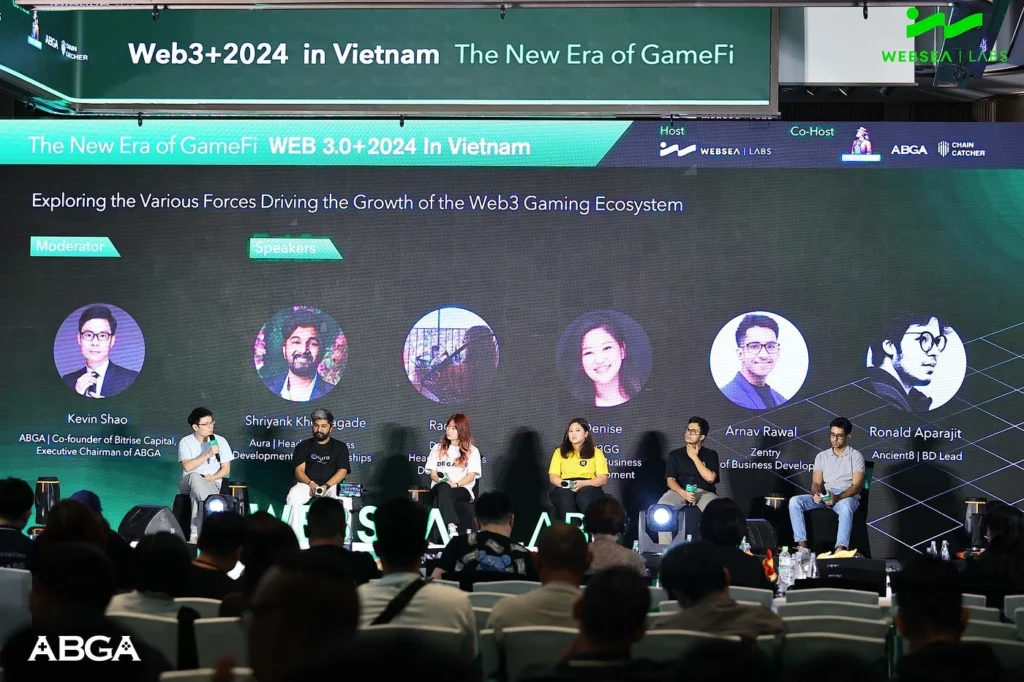How to Understand the Metaverse Trend in 2025 — A Practical Guide
The Metaverse Trend in 2025: Fading Hype, Growing Roots
The metaverse trend in 2025 no longer commands the same breathless excitement it did just a few years ago. There are fewer conferences showcasing glittery VR goggles and less talk of a fully immersive second life. But what replaced that noise is something arguably more valuable: steady progress.
Across Asia — and particularly in Vietnam — the metaverse has found new footing. It’s not necessarily what it was imagined to be in 2021, but its components are quietly integrating into areas like Web3 gaming, remote education, digital retail, and decentralized identity. These fragments may lack the visual drama of a single shared 3D world, but they represent real adoption.
From Fantasy to Function: Rethinking the Metaverse
Today’s metaverse looks a lot different from the conceptual worlds pitched during the last crypto bull run. Instead of expansive virtual cities, the trend has turned toward modularity — small, specific-use digital environments that serve practical needs.
Gaming is where this shift is most visible. In 2025, Web3 gaming doesn’t always flaunt its blockchain underpinnings. The technology now sits quietly in the background, enabling features like asset portability, peer-to-peer trading, and fair revenue sharing for creators. In Vietnam, game developers are taking this even further, blending Web2 familiarity with Web3 mechanics. Most players won’t realize they’re interacting with blockchain at all — and that’s the point.
Vietnam: A Quiet but Crucial Player in the Metaverse Movement

Credit from KrASIA
While larger economies wrestle with regulatory uncertainty and public skepticism, Vietnam has quietly become one of the more agile and inventive spaces for metaverse-aligned innovation. The country’s young, mobile-first population — many of whom are deeply engaged in crypto, esports, and online creation — continues to drive demand for virtual experiences.
A number of Vietnamese blockchain gaming startups in 2025 are targeting regional audiences with lightweight, mobile-native games that embrace the ethos of Web3 without overcomplicating the user experience. These include arena-based games with NFT characters, social games tied to real-life events, and collectible platforms offering local cultural content in tokenized form.
Beyond gaming, adoption of metaverse technology in Vietnam is finding a foothold in education (virtual job fairs, campus tours), retail (digital showrooms), and even tourism (AR-enhanced heritage sites). These aren’t grand visions — they’re functioning products with measurable user bases.
Web3 Gaming as the Entry Point

Credit from Medium
If the metaverse still has relevance in 2025, it’s because Web3 gaming keeps the door open. Unlike other sectors where blockchain use cases remain abstract, gaming offers tangible value: ownership of items, identity across platforms, and economic participation for players.
This model is evolving. The “play-to-earn” frenzy has been replaced by more sustainable frameworks — often “play-and-own” or “play-and-create” — that don’t require constant token inflation to survive. In Vietnam, studios are experimenting with hybrid models that include traditional revenue (ads, skins) alongside decentralized marketplaces. It’s less flashy, but more playable.
Is the Metaverse Still Relevant in 2025?
That depends on how you define relevance. If it’s media coverage or VC hype, the metaverse may seem passé. But if relevance means real people using metaverse-like experiences in daily life — to learn, play, work, and socialize — then yes, the metaverse trend is alive, and it’s maturing.
It’s no longer about escaping the real world, but enhancing it in small, meaningful ways. That might be through a Vietnamese student attending a career workshop in a gamified 3D space, or a developer in Ho Chi Minh City designing avatar skins for a global gaming marketplace. These moments aren’t necessarily headline-worthy, but they are signs of something durable.
Conclusion on Metaverse trend: Not Dead, Just Different

Credit from IMARC Group
In 2025, the metaverse trend has moved beyond spectacle. What remains is more grounded — and in some cases, more useful. Thanks to the steady pulse of Web3 gaming, especially in innovation hubs like Vietnam, the metaverse hasn’t vanished. It’s simply growing up.




